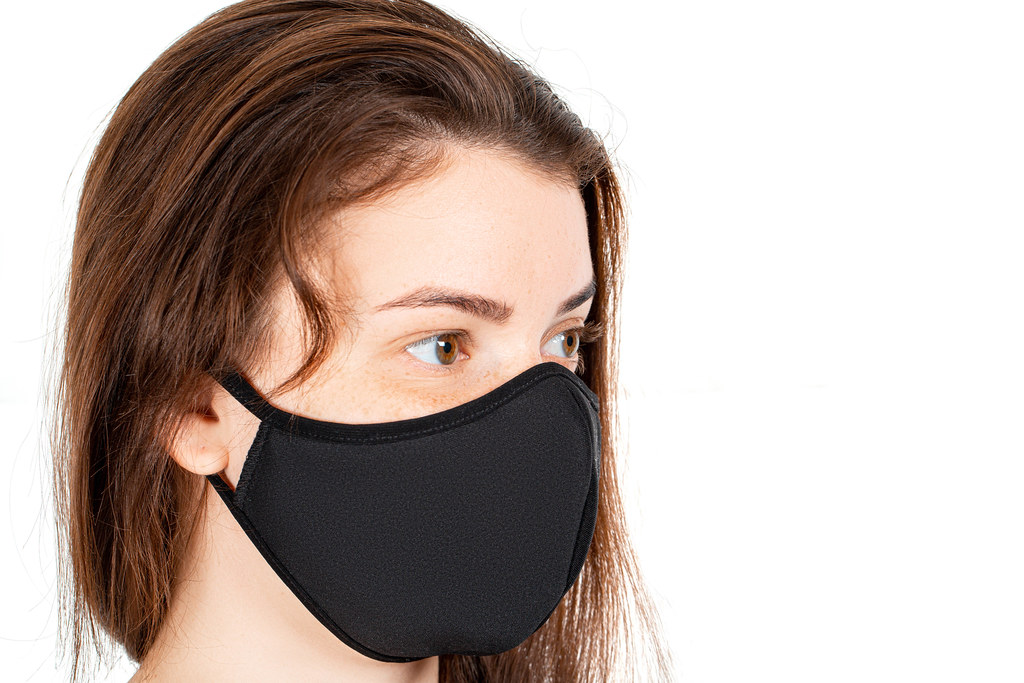Remember, Government Advice is to wear a Face Covering while in shops and shopping centres.
Retail staff will also be required to wear a face covering unless there is a partition between them and members of the public or where there is a distance of 2 metres between them and members of the public. Regulations, with details on enforcement and penalties are in the process of being drafted.
Face coverings are required on public transport.
Wearing a cloth face covering is also recommended in situations where it is difficult to practise social distancing, for example in shops. Wearing of cloth face coverings may help prevent people who do not know they have the virus from spreading it to others.
If you wear one, you should still do the important things necessary to prevent the spread of the virus.
These include:
- Washing your hands properly and often
- Covering your mouth and nose with a tissue or your sleeve when you cough and sneeze
- Not touching your eyes, nose or mouth if your hands are not clean
- Social distancing (keeping at least 2 metres away from other people)
Cloth Face Coverings:
A cloth face covering is a material you wear that covers the nose and mouth.
Wearing a cloth face covering in public may reduce the spread of COVID-19 (Coronavirus) in the community. It may help to reduce the spread of respiratory droplets from people infected with COVID-19 (Coronavirus).
Cloth face coverings may help to stop people who are not aware they have the virus from spreading it.
If you have COVID-19 (Coronavirus) or have symptoms of the virus, you must self-isolate. Do this even if you wear a face covering.
When to wear one:
Face coverings are required on public transport.
Wearing of face coverings is recommended in the following circumstances:
- When staying 2 metres apart from people is difficult – for example, in shops or shopping centres
- By people visiting the homes of those who are cocooning
- By people who are being visited in their homes by those who are cocooning
Cloth face coverings are made from materials such as cotton, silk, or linen.
You can buy them or make them at home using items such as scarfs, t-shirts, sweatshirts, or towels.
Cloth face coverings are not suitable for children under the age of 13 and anyone who:
- Has trouble breathing
- Is unconscious or incapacitated
- Is unable to remove it without help
- Has special needs and who may feel upset or very uncomfortable wearing the face covering
Do not criticise or judge people who are not able to wear a face covering.
Wash daily in a hot wash over 60 degrees with detergent.
If using a washing machine, you should be able to wash and machine dry it without damage or change to shape.
You do not need to sterilise cloth face coverings. Wash it in a washing machine or by hand as you would any other item of clothing.
Wash hands before and after use.
You should throw out a cloth face covering when it:
- No longer covers the nose and mouth
- Has stretched out or damaged ties or straps
- Cannot stay on the face
- Has holes or tears in the fabric
Do:
- Clean your hands properly before you put it on
- Practise using it so you are comfortable putting it on and taking it off
- Make sure it is made from a fabric you are comfortable wearing
- Cover your mouth and nose with it and make sure there are no gaps between your cloth face covering
- Tie it securely
- Carry unused masks in a sealable clean waterproof bag(for example, a ziplock bag)
- Carry a second similar type bag to put used masks in
Don’t:
- Touch a mask or face covering while wearing it – if you do, clean your hands properly
- Use a damp or wet medical mask or reuse a medical mask
- Share masks
- Do not lower your mask to speak, eat and smoke or vape – if you need to uncover your nose or mouth take the mask off and put it in the bag for used masks
- Do not discard masks in public places
Want to get €5, absolutely free? Sign up to the ‘Smart’ Debit Card – Curve today, and earn a fiver on us! Find out more here.

